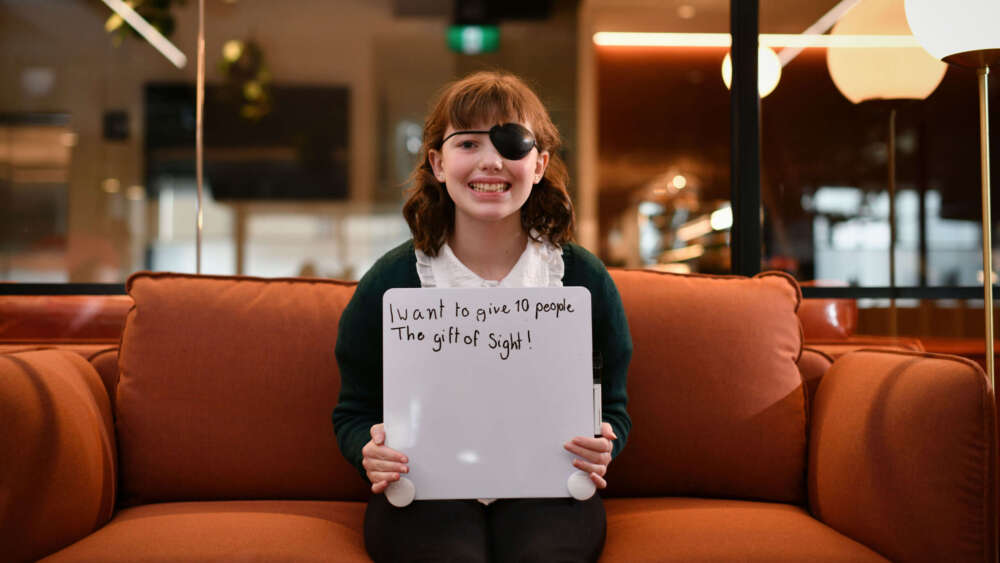Twelve-year-old Catie, from Melbourne, is wearing an eye patch for a week to help raise enough funds to give sight-saving cataract surgery to ten people in poorer countries around the world.
Catie’s fundraising gesture is part of CBM’s Miracles Day, which is today, August 18.
“I decided to wear the eye patch to experience what it’s like for people who are blind in one eye and the struggles they go through daily,” she said.
“When I saw an 11-year-old boy named Curtis last year on the news, cleaning out wheelie bins to raise money for Miracles Day, it inspired me to do something too.
“If I get to $330, that’s ten surgeries – and ten people whose lives will be changed forever.”
Catie is also donating two months’ worth of her pocket money as a kick-starter towards her $330 goal.
“I decided to wear the eye patch to experience what it’s like for people who are blind in one eye and the struggles they go through daily.” – Catie
Miracles Day raises money for much-needed cataract operations in countries such as the Philippines, Bangladesh, Kenya and Nepal. Each cataract surgery costs $33, takes just 12 minutes, and can change the life of someone forever. CBM defines each surgery as a ‘Miracle.’
In the ten years Miracles Day has been running, Australians have funded 300,000 miracles of sight-saving surgery. CBM created Miracles Day in 2012 to give the gift of sight-saving surgery to people living in poverty. The surgery also includes the pre-screening, travel and post-surgical costs.
Catie is one of two social justice leaders in her class, thinking of ideas to raise money for charities and other organisations. She is asking friends, family, and classmates to donate to the cause.
Miracles Day aims to highlight the 94 million people worldwide in need of a cataract operation, with Australians being asked to donate $33 to fund each restorative surgery.
Jane Edge, CBM CEO, said cataracts were one of the world’s leading causes of blindness, with most of those affected living in the world’s poorest countries – where surgery is often out of reach.
“The pandemic has really exacerbated the need, with a backlog of people needing surgery now,” Ms Edge said.
To donate, call 131 226 or click here.
Email This Story
Why not send this to a friend?


